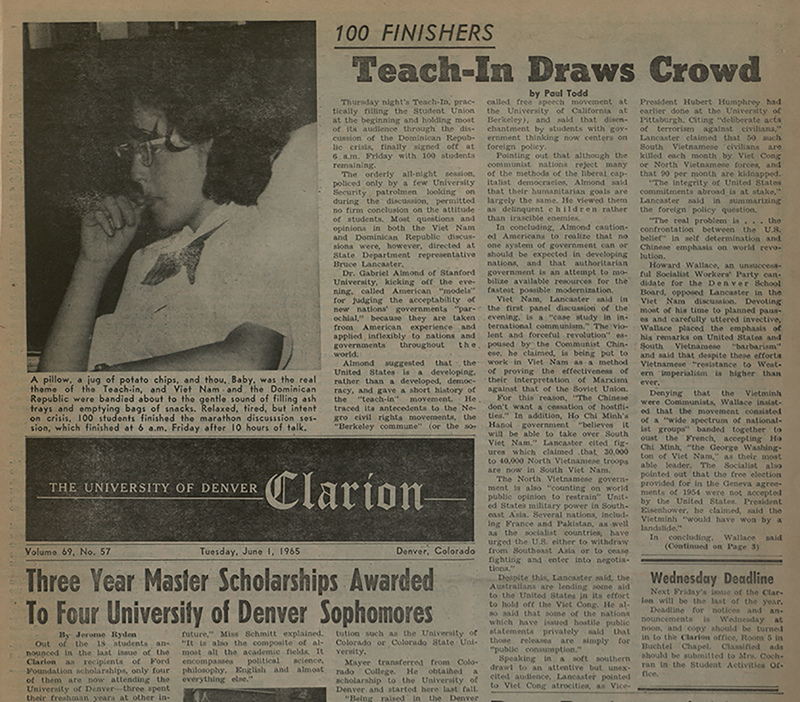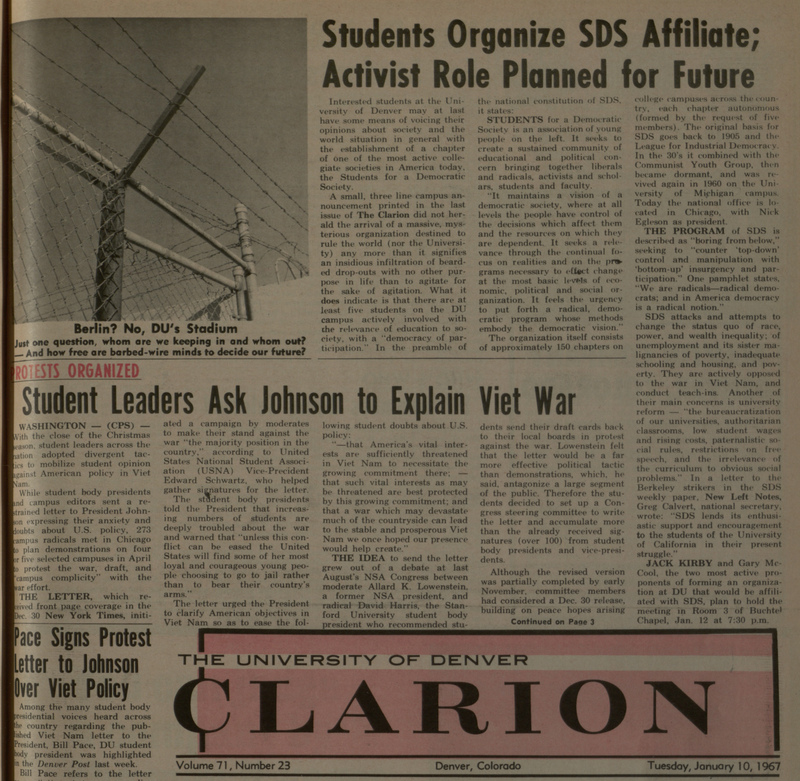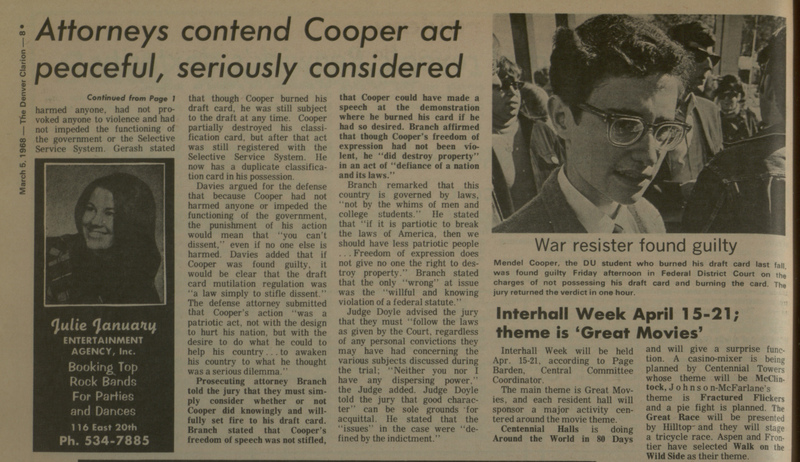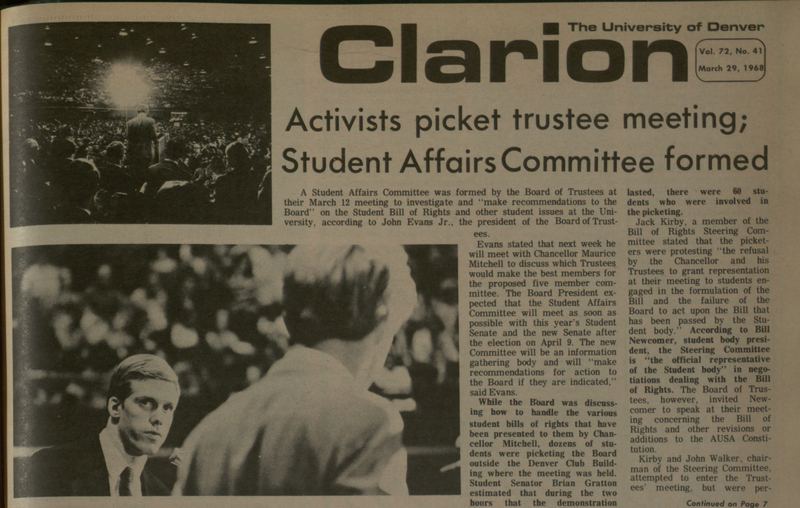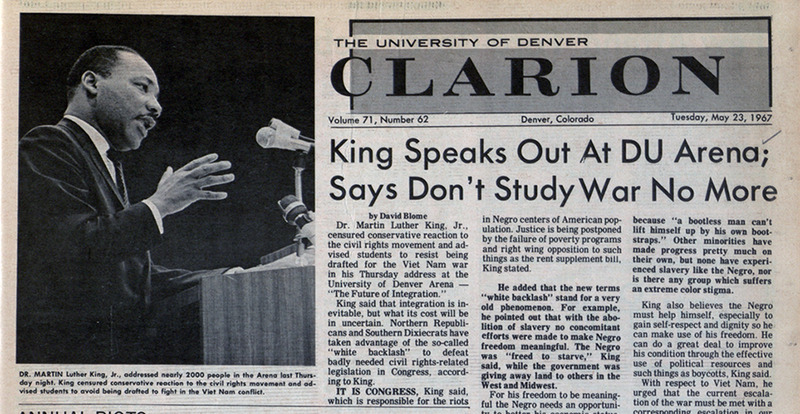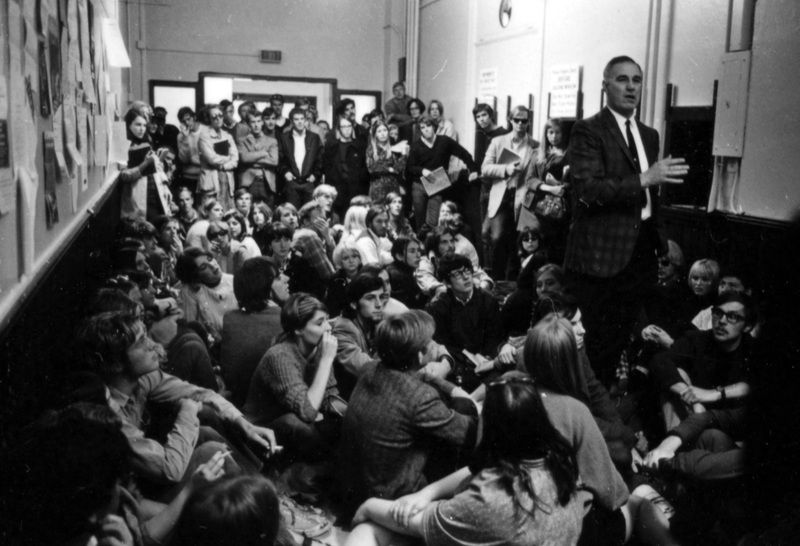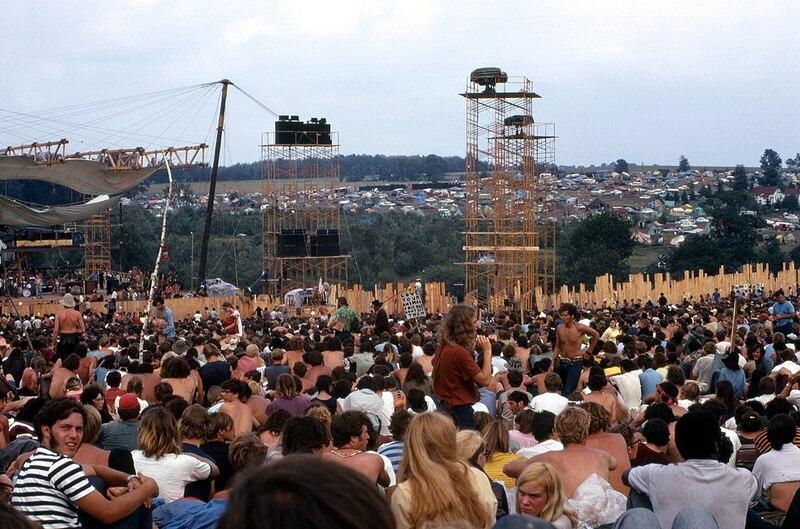Woodstock West: "Build, Not Burn"
May 1965
Teach-Ins
In 1965, teach-ins, conceived along the same lines as sit-ins, cropped up in cities across the country. DU held one on May 20, 1965 though it was sparsely attended. This event, however small, showed that the DU campus was thinking about, how the peace movement was beginning to politicize a generation, and how faculty and students might begin to challenge the status quo in ways connected to national resistance efforts.
Access the full article "Teach-In Draws Crowd" from DU Clarion, May 25, 1965 (on last page).
January – April 1967
Students for a Democratic Society (SDS)
In early 1967, the University got its first affiliate of the Students for a Democratic Society (SDS). They held a well-attended event “Gentle Thursday,” in April 1967, which SDS was clear to say was not a “political or social protest,” but a chance for students to build community and get to know one another.
October 1967
Mendel Cooper Burns Draft Card
On October 16, 1967, DU student Mendel Cooper, the child of Holocaust survivors, partially destroyed his draft card during a rally organized by the DU chapter of SDS as part of a series of nationwide protests. Alongside the other 1,400 who burned or mutilated their draft cards, Cooper was brought up on charges, with the potential of $10,000 fine and 5 years in jail, although few received jail sentences. Cooper went to trial and was found guilty in March 1968.
March 1968
Students Bill of Rights
From fall 1967 onward, the SDS activities on campus were largely focused on shared governance efforts for students. An important agenda item was the Students’ Bill of Rights, written and voted down in a prior year, and again read at the Board of Trustees in March 12, 1968 and not ratified. The major sticking point was section 3, “students have the right to fully participating membership, with equal voice and vote, on those University committees and organizations that affect students’ academic affairs, and absolute authority over all University committees and organization that affect solely the personal affairs of the students.”
April 4, 1968
Rev. Martin Luther King Jr. Assassinated
King had come to the DU campus twice, the last time in May 1967, both to talk about his ongoing work for civil rights and working to combat poverty, as well as encouraging students who attended to resist the draft. While King is certainly mentioned in articles through the rest of the academic year, the overwhelming emphasis continues to be on the students’ bill of rights and anti-war activities.
April 25, 1968
All Undergraduate Student Association (AUSA) Sit-In
Three weeks after King’s assassination, DU students attempting to pressure the Board of Trustees into greater autonomy and authority for self-government. The coverage of the event itself centers largely on the students’ demand to allow a graduate student to run for election to the All-Undergraduate Student Association (AUSA) - but it seems that this was largely a tactic designed to pressure the Board, which had just voted down the Students’ Bill of Rights, to reconsider.
October 11, 1968
Anti-George Wallace Protest
George Wallace was the 45th governor of Alabama. Famous for his belief in “segregation now, segregation tomorrow, segregation forever,” and called by Rev. Martin Luther King Jr. in 1965 “perhaps the most dangerous racist in America today,” Wallace was a polarizing politician who ran as a third-party candidate for the American Independent Party in the 1968 presidential election.
On October 11, 1968, Wallace attempted to give a campaign speech on the steps of the Denver Capitol Building. Members of the DU Chapter of the Students for a Democratic Society (SDS) joined students and other protesters from across the state to disrupt Wallace’s speech. Protesters carried signs likening Wallace to Adolf Hitler, shouting: “Sieg Heil!” The protesters were so disruptive and loud that Wallace was forced to leave the stage and abandon his speech.
August 1969
Woodstock Music Festival Takes Place
Woodstock, a music festival from which “Woodstock West” gained its name, took place in 1969. In addition to the name, the students who made up the Woodstock West community referenced Joni Mitchell’s song, recorded by Crosby, Stills, and Nash for their Déjà Vu album, in the cover sheet for their “statement of purpose” for the community. Rumors about Crosby, Stills, and Nash “walking through Woodstock” would permeate the encampment during the last few days, though the band never materialized.
